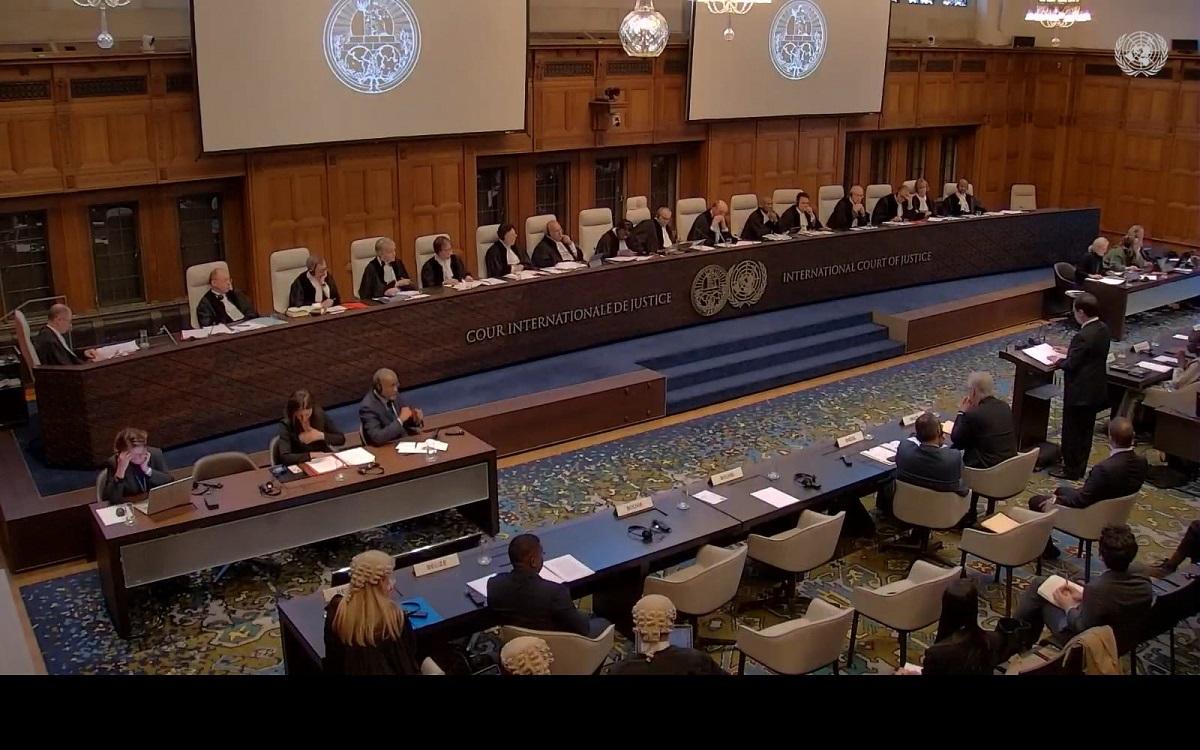Acts resulting in greenhouse emissions a breach of int’l law, SolGen tells ICJ

Philippine officials have submitted before the International Court of Justice (ICJ) that acts of states resulting in anthropogenic greenhouse gases (GHG) emissions over time and causing climate change should be a breach of obligation under international law.
Solicitor General Menardo Guevarra made the remark during the oral proceedings at the ICJ on the question of the obligations of states regarding climate change.
“[T]he Philippines submits that any act or omission attributable to a State which results, or has resulted in, anthropogenic GHG emissions over time thereby causing climate change is a breach of a State’s obligation under international law,” he said.
“Such act or omission is an internationally wrongful act which necessarily gives rise to a corresponding legal consequence pursuant to international law,” he added.
He said states affected by wrongful acts of other states in respect to climate change may demand enforcement of remedial actions, including cessation or reparation.
Further, Guevarra said that the obligation of states to the environment should not be confined within the limits of specific international agreements.
“The insidious effects of climate change require that the entire plethora of customary international law, general principles of international law, and various conventions and treaties be correlated and applied simultaneously,” he said.
According to Guevarra, the obligation not to cause transboundary harm under customary international law compels all states to ensure that activities in their territory must respect the environment of other states.
Guevarra said the Philippine government concedes that economic development is necessary, but stressed that states must not compromise future generations.
“[W]e should not compromise the long-term sustainability of resources; we should not compromise the ability of future generations to meet their own needs,” he said.
Aside from Guevarra, the Philippine delegation was composed of Ambassador Eduardo Malaya, Ambassador Carlos Sorreta, and Assistant Solicitor General Bernard Hernandez.
For his part, Sorreta argued that climate change is also a threat to international peace and security. He said the maintenance of peace and security is also an obligation under the United Nations Charter.
“States are bound to address the climate crisis within a legal framework that maintains peace and security, respects sovereignty, and upholds human rights,” he said.
“Law is essential to ensure a future where all can live with dignity, security, and resilience in the face of a dramatically changing climate,” he added.
In March 2023, the UN General Assembly adopted a resolution calling for the world body's top court to outline legal obligations related to climate change.
In a separate statement, Greenpeace welcomed the arguments of the Philippine delegation, saying it is a welcome lifeline for the call for climate justice.
“[The ICJ’s advisory opinion] has moral authority, and persuasive authority. The interpretation or advisory opinion of the ICJ can be cited eventually to interpret international law,” Atty. Ryan Jay Roset of the Legal Rights and Natural Resources Center said in a statement
“If there's a case brought between states, you can actually say that in this advisory opinion, states have the legal obligation to address climate change, and as a consequence, they should actually do something to prevent or address it,” he added. — BM, GMA Integrated News




